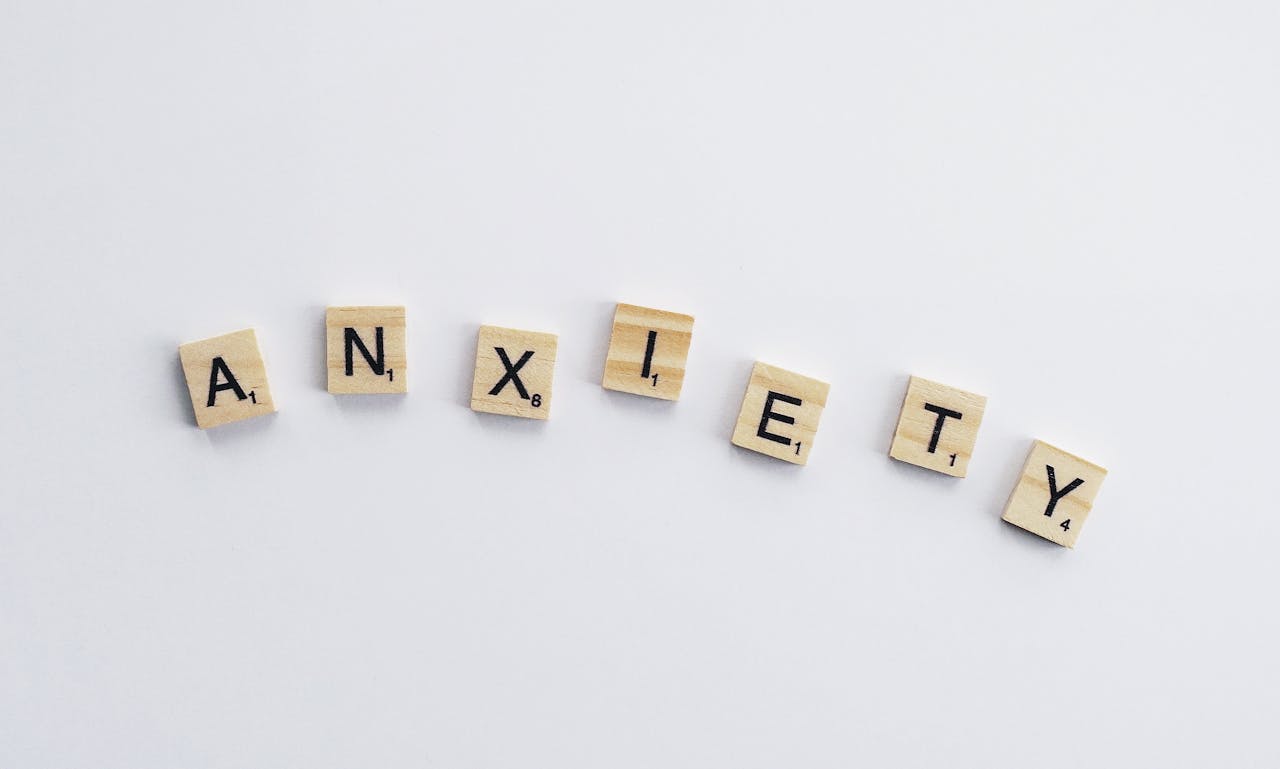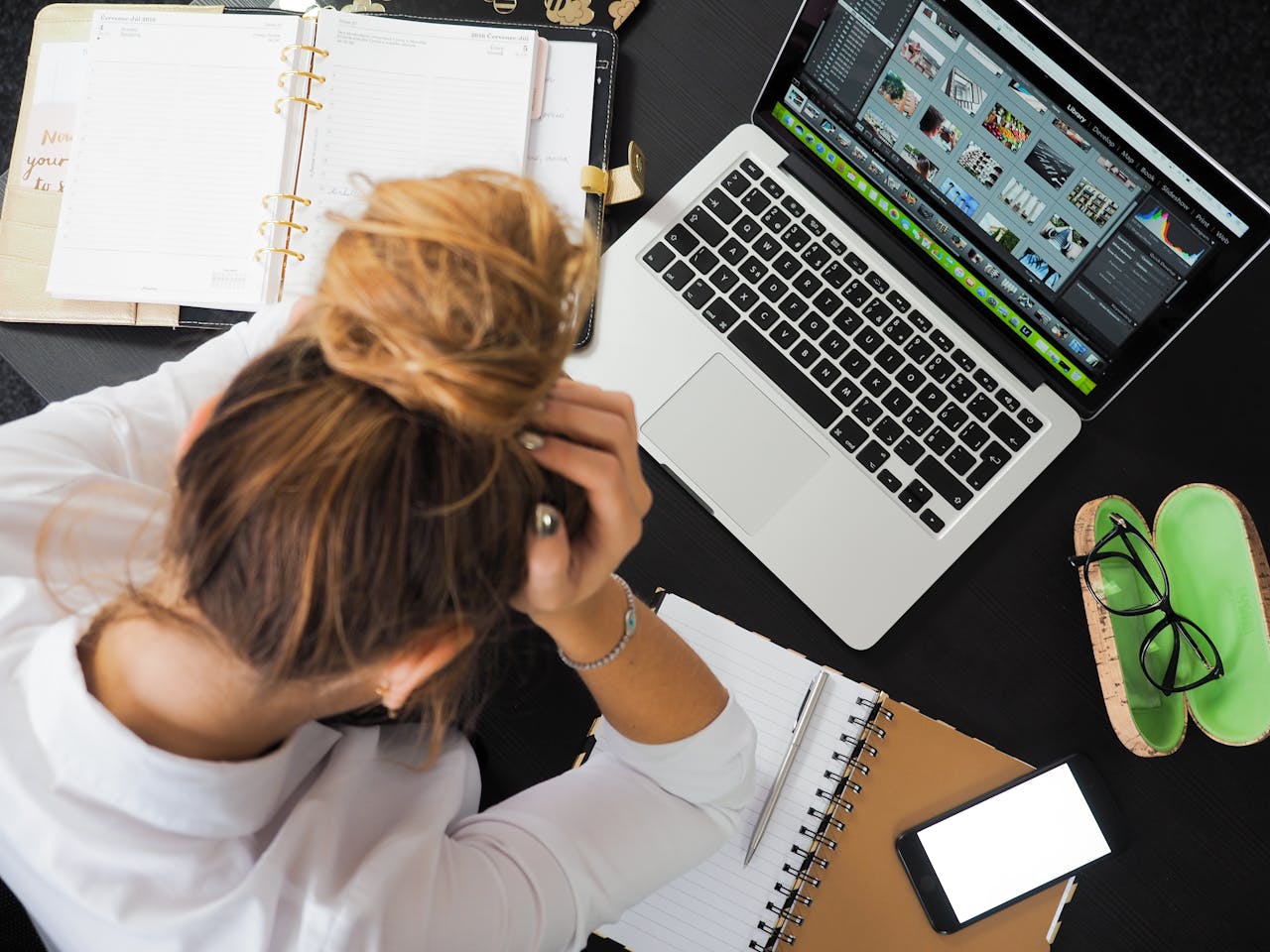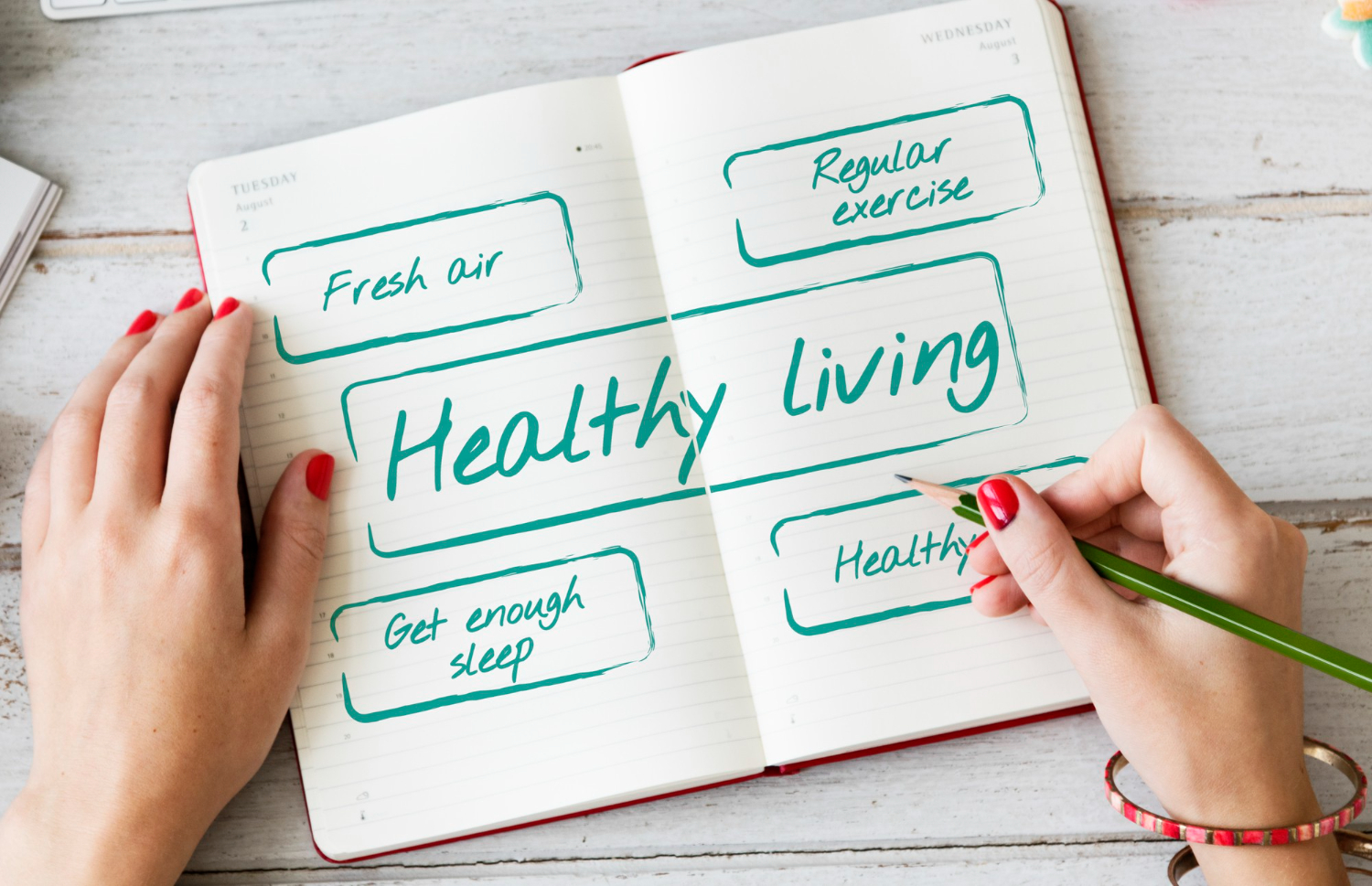What is Anxiety: Meaning, Signs, and How to Manage

Anxiety is one of the most common mental health concerns affecting people today, with millions experiencing its impact in varying degrees. Whether it arises in response to daily stressors or persists without an obvious cause, anxiety can significantly affect one’s emotional and physical wellbeing.
Recognising the signs early and learning how to manage anxiety effectively is essential for maintaining balance and overall mental health. In this article, we’ll explore what anxiety truly means, how to identify its symptoms, and most importantly, practical strategies to reduce and manage it in everyday life.
What is Anxiety
Anxiety is a natural emotional response to stress, uncertainty, or perceived danger. It’s the body’s way of preparing us to face or avoid a threat, often known as the “fight or flight” response. In small doses, anxiety can be helpful, keeping us alert and focused during important moments like exams, interviews, or public speaking. However, when feelings of fear, worry, or unease become frequent, overwhelming, or disproportionate to the situation, they may point to an anxiety disorder.
Anxiety in a clinical perspective is a mental health condition characterised by persistent, excessive worry that can interfere with daily life. Unlike occasional nervousness, anxiety disorders often manifest without a clear trigger and may last for weeks, months, or even years if left unaddressed.
There are several types of anxiety disorders, including:
- Generalised Anxiety Disorder (GAD): ongoing worry about various aspects of life
- Panic Disorder: sudden episodes of intense fear or physical panic
- Social Anxiety Disorder: fear of social interactions or being judged
- Phobias: intense fear of specific objects or situations (e.g. heights, spiders)
Understanding what anxiety is helps lay the foundation for recognising the signs and taking meaningful steps toward support and management.
Common Signs of Anxiety
Recognising the signs of anxiety is a crucial first step in understanding and addressing how it may be affecting your life. While anxiety shows up differently for everyone, there are some common symptoms that many people experience, both physical and emotional.
Emotional and Cognitive Signs
- Persistent worry or fear that feels difficult to control
- Feeling on edge, nervous, or overwhelmed
- Racing thoughts or an inability to “switch off”
- Irritability or a short temper
- Difficulty concentrating or mind going blank
Physical Symptoms
- Rapid heartbeat or palpitations
- Shortness of breath or chest tightness
- Muscle tension, headaches, or stomach discomfort
- Sweating or trembling
- Difficulty falling or staying asleep
Behavioural Changes
- Avoidance of certain places, people, or situations
- Withdrawal from social activities
- Increased reliance on substances like alcohol or caffeine to cope
While these signs of anxiety can appear in response to a stressful event, they often persist beyond the immediate situation, sometimes without an obvious cause. If symptoms begin to interfere with your daily responsibilities, relationships, or sense of wellbeing, it may be time to seek professional support.
Remember, anxiety is highly treatable, and identifying the signs early can lead to more effective management.
Causes and Triggers of Anxiety
While anxiety can sometimes feel like it comes out of nowhere, there are often identifiable causes and triggers behind it. These can vary widely from person to person and may involve a combination of biological, psychological, and environmental factors.
1. Life Circumstances and Stress
One of the most common triggers of anxiety is ongoing stress related to work, relationships, finances, or major life changes. Deadlines, job insecurity, exams, or caring for a loved one can all contribute to increased anxiety levels, especially if there’s little time or space to unwind.
2. Past Trauma or Difficult Experiences
Experiencing trauma such as abuse, neglect, loss, or a serious accident can have long-lasting effects on mental health. People with a history of trauma are often more sensitive to stress and may develop anxiety in situations that remind them of the past, even subconsciously.
3. Genetics and Brain Chemistry
Research suggests that anxiety can run in families. Some individuals may have a genetic predisposition that makes them more likely to develop an anxiety disorder. Additionally, imbalances in certain brain chemicals (such as serotonin or dopamine) and a hyperactive amygdala, the brain’s fear centre can contribute to increased anxiety responses.
4. Physical Health and Lifestyle Factors
- Lack of sleep, poor diet, or limited physical activity can all worsen anxiety symptoms.
- Substance use, including caffeine, alcohol, and recreational drugs can both trigger and exacerbate anxiety.
- Certain medical conditions (e.g. thyroid issues, heart problems) can mimic or aggravate anxiety symptoms.
5. Social and Environmental Pressures
Social media, constant connectivity, and unrealistic expectations, especially in a fast-paced modern world can increase feelings of inadequacy and stress. Loneliness or lack of social support can also heighten feelings of anxiety.
Understanding your unique triggers for anxiety is an important part of learning how to manage it effectively. Keeping a journal or speaking with a mental health professional can help you identify patterns and take steps toward healthier coping strategies.
Practical Strategies to Deal with Anxiety
Managing anxiety doesn’t always require drastic changes, in fact, small, consistent habits often make the biggest impact. Whether you’re dealing with occasional stress or living with an anxiety disorder, learning how to deal with anxiety through practical, everyday techniques can greatly improve your wellbeing.
Below are some evidence-based strategies to deal with anxiety:
1. Try Deep Breathing and Grounding Techniques
Anxiety often causes shallow, rapid breathing, which can increase feelings of panic. Deep breathing activates the body’s relaxation response, helping you to calm down both physically and mentally.
Try this simple exercise:
Inhale slowly for 4 seconds → Hold for 4 → Exhale for 4 → Pause for 4 (known as box breathing).
Repeat several times to reset your nervous system.
2. Practice Mindfulness and Meditation
Being present in the moment, rather than caught in worry about the future can help interrupt anxious thoughts. Guided meditations, body scans, and mindful breathing (via apps like Headspace or Calm) have been shown to reduce anxiety levels over time.
Tip: Start with just 5–10 minutes per day. Consistency is more important than duration.
3. Use Cognitive-Behavioural Tools (CBT)
CBT techniques involve identifying unhelpful thoughts and replacing them with more balanced ones.
Try this approach: When a worry arises, ask yourself:
- Is this thought realistic?
- What’s the evidence for and against it?
- What would I say to a friend thinking this?
This helps reduce catastrophising and gives you more control over your inner narrative.
4. Set Healthy Boundaries
Too many responsibilities or constant connection (e.g., emails, social media) can fuel anxiety. Learn to say “no,” take breaks, and create time for rest and personal space, especially when working from home.
5. Talk It Out
You don’t have to go through it alone. Sharing your thoughts with a trusted friend, family member, or mental health professional can reduce the weight of anxious feelings and help you gain perspective.
6. Create a ‘Calm Kit’ for Tough Moments
Keep a few anxiety-soothing items handy, such as a journal, calming playlist, scented candle, herbal tea, or comforting object. When anxiety hits, use your kit as a way to ground yourself and shift focus.
How to Reduce Anxiety Long-Term
While short-term coping strategies can help you manage anxiety in the moment, long-term relief often comes from building healthier habits and creating a lifestyle that supports emotional resilience. Understanding how to reduce anxiety over time involves looking at the bigger picture, from your daily routine to the way you respond to stress.
Here are several sustainable approaches to help you lower anxiety in the long run:
1. Prioritise Quality Sleep
Poor sleep and anxiety often go hand-in-hand. Getting consistent, quality rest helps regulate mood and reduces sensitivity to stress.
Tips for better sleep:
- Stick to a regular bedtime and wake-up time
- Avoid screens, caffeine, and heavy meals in the evening
- Wind down with calming rituals such as reading or a warm bath
2. Nourish Your Body
What you eat affects how you feel. A balanced, nutrient-rich diet can support your brain chemistry and nervous system.
Helpful foods include:
- Leafy greens, whole grains, nuts, and seeds (rich in magnesium and B vitamins)
- Oily fish like salmon (high in omega-3 fatty acids)
- Berries and colourful vegetables (packed with antioxidants)
- Chamomile or green tea (natural calming properties)
Limit caffeine, sugar, and alcohol, which may spike anxiety symptoms or disrupt sleep.
3. Build a Support System
Social connection is one of the most protective factors against anxiety. Regularly spending time with loved ones, joining peer support groups, or connecting with like-minded communities can offer a strong sense of belonging and emotional safety.
4. Reduce Exposure to Stressors Where Possible
Take inventory of sources of chronic stress and identify what’s within your control. This might involve:
- Limiting social media use
- Delegating tasks at work or home
- Saying “no” more often without guilt
- Scheduling regular time for rest, hobbies, and joy
5. Stay Active
Regular physical activity releases endorphins (natural mood boosters), reduces muscle tension, and promotes better sleep, all of which help lower anxiety.
You don’t need a gym: Go for a brisk walk, dance to music, try yoga, or do simple stretches at home. Aim for 30 minutes, 3–5 times per week.
6. Work with a Therapist or a Life Coach
If you’re feeling stuck, working with a professional can offer tailored guidance. A therapist can help uncover root causes, challenge unhelpful thought patterns, and support you through recovery using evidence-based techniques like CBT or ACT.
Alternatively, a life coach can help if your anxiety is linked to a lack of direction, unfulfilled goals, or lifestyle challenges. Life coaches focus on motivation, accountability, and helping you take practical steps towards a more balanced and fulfilling life.
Whether you choose therapy, coaching, or both, reaching out for help is a powerful act of self-care.
Final Thoughts on Understanding and Managing Anxiety
Anxiety is a common yet complex experience that affects people in different ways. Whether you’re facing occasional anxious thoughts or living with a diagnosed anxiety disorder, it’s important to remember that support is available and recovery is possible.
By understanding what anxiety is, recognising the signs early, and adopting practical strategies, you can take back control and live a calmer, more balanced life.
Frequently Asked Questions
1. Can a life coach help with anxiety?
Yes, a life coach can support you in managing anxiety, especially when it’s linked to life changes, career pressure, or feeling stuck. Coaches don’t provide therapy, but they help you build structure, set realistic goals, and create routines that reduce stress. If your anxiety is affecting your daily life or feels overwhelming, a coach may also guide you towards professional mental health support alongside coaching.
2. What’s the difference between a therapist and a coach for anxiety?
A therapist focuses on past experiences and emotional healing. A life or career coach works with you in the present to move forward. If your anxiety is mild to moderate and mostly tied to areas like work, confidence, or decision-making, a coach can help you take practical steps. If it involves panic attacks or deep emotional distress, it’s best to speak with a licensed mental health professional.
3. How does coaching reduce work-related anxiety?
Coaching can help reduce work-related anxiety by helping you break down big challenges into manageable steps. A coach will support you in setting boundaries, organising your time, improving your focus, and building confidence at work. When you feel more in control of your actions and choices, the anxiety around your job or career often becomes easier to manage.
4. Is anxiety coaching available in Dubai or the UAE?
Yes, many coaches in Dubai and across the UAE now offer support specifically for anxiety. Some focus on stress linked to expat life, job uncertainty, or performance pressure. You can find coaching in person or online, depending on what suits you best. It’s important to check the coach’s background to make sure they have experience in anxiety-related coaching.
5. What should I expect from my first coaching session for anxiety?
In your first session, you’ll usually talk about what’s been causing your anxiety and what you’d like to improve. A coach will ask simple questions to help you reflect, clarify your goals, and identify where to start. You’ll leave with a clearer plan or small action step.
- September 2025
- August 2025
- July 2025
- June 2025
- May 2025
- April 2025
- March 2025
- February 2025
- January 2025
- December 2024
- November 2024
- October 2024
- September 2024
- August 2024
- July 2024
- June 2024
- May 2024
- December 2023
- November 2023
- August 2023
- July 2023
- June 2023
- May 2023
- April 2023
- March 2023
- February 2023
- January 2023
- December 2022
- November 2022
- October 2022
- September 2022
- August 2022
- July 2022
- June 2022
- May 2022
- April 2022
- March 2022
- February 2022
- January 2022
- December 2021
- November 2021
- October 2021
- September 2021
- August 2021
- July 2021
- June 2021
- May 2021
- April 2021
- March 2020
- February 2020
- January 2020
- December 2019
- November 2019
- October 2019
- September 2019
- August 2019
- July 2019
- June 2019
- May 2019
- April 2019
- March 2019
- February 2019
- January 2019
- December 2018
- November 2018
- October 2018
- September 2018
- August 2018
- July 2015
- May 2014









